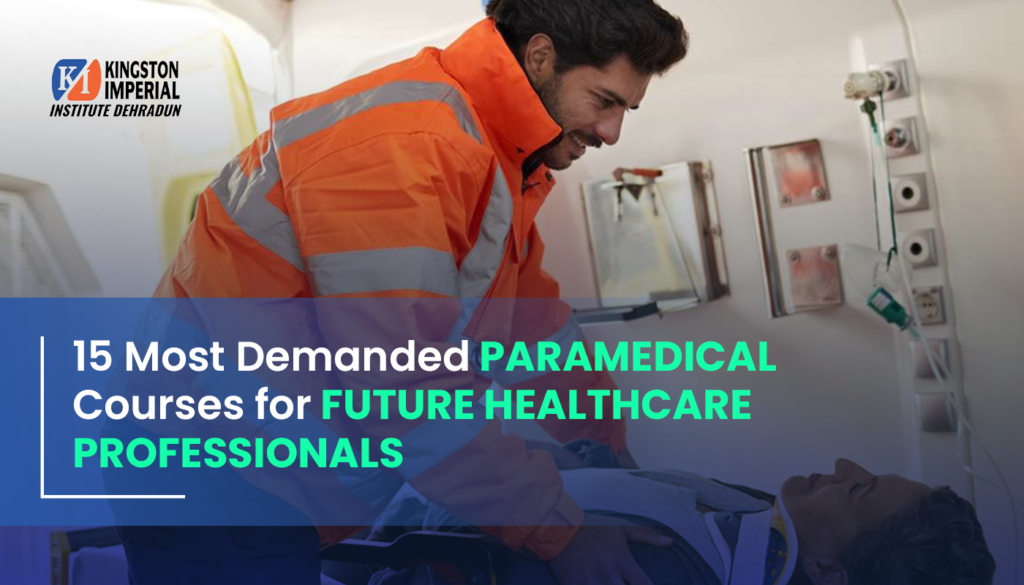
The healthcare industry is the world’s biggest job market with hundreds of career development opportunities. Paramedical courses are aimed at immediate medical professionals, who deliver crucial healthcare services, and are likely to improve the standard of healthcare.
Paramedical staff are equally important in diagnostic, emergency, rehabilitation and a host of other aspects of medicine that makes a career in the health service an attractive proposition whilst at the same time enabling you to investigate all fields of formal medical training.
KIIMS Dehradun with its 22 years’ experience in healthcare education provides the student with the specialized programmes to equip them for many paramedical careers.
This guide impacts some life into the search for the right paramedical courses in demand, guiding some of you in the direction of the healthcare profession you wish to qualify for.
What Are Paramedical Courses?
The paramedical courses involve a lot of training in one specific area or a few areas of medical practice. Paramedics do not, however, have the authority to diagnose conditions and prescribe medications as medical doctors do, although they are an integral part of the medical field. They are involved in the diagnosis of diseases, patient care and in the provision of emergency care.
A wide range of healthcare services, including those provided by paramedical roles such as diagnostic lab technicians, radiographers, physiotherapists, and emergency medical technicians, are all included within one umbrella category.
Why Choose a Career in Paramedical Sciences?
High Demand for Healthcare Professionals: The growing aging population and supply by which qualified paramedical professionals are created in hospitals, clinics, and diagnostic centres.
Diverse Career Opportunities: Paramedical courses that cover a wide spectrum of fields are not only capable of leading to radiology, physiotherapy, and lab technology, but also can cover other areas such as emergency care and others.
Direct Impact on Patient Care: Paramedics are extremely important for the health of patients, as they deal with diagnosis, treatment, and physical/mental support. Therefore, they are the ones who actually make a huge difference in people’s lives.
Job Stability and Security: Healthcare jobs being paramountly unaffected by recession means that such professionals will essentially have both job stability and long-term security.
Opportunities for Global Work: Paramedical certificates are usually recognized internationally, thus offering opportunities for employment in such countries and in different healthcare systems.
15 Most Demanding Paramedical Courses in 2025
Here are some of the top paramedical courses that are not only popular but also offer excellent job prospects.
1. B.Sc Nursing
Overview: Nurses are central to patient care, responsible for administering treatments, monitoring patients, and educating families about health conditions.
Duration: Typically 4 years.
Career Opportunities: Nurses can work in hospitals, clinics, nursing homes, and even as healthcare coordinators in various organizations.
2. BSc Radiology & Imaging Technology
Overview: Radiologists and imaging technicians are trained to perform diagnostic imaging procedures such as X-rays, MRIs, and ultrasounds.
Duration: 3-4 years.
Career Opportunities: Professionals can work as MRI technicians, radiologic technologists, or in advanced imaging roles in hospitals and diagnostic centers.
3. BSc in Medical Laboratory Technology (MLT)
Overview: MLT professionals play a critical role in diagnosing diseases by analyzing blood, tissues, and other body fluids.
Duration: 3 years.
Career Opportunities: Medical lab technologists, pathology assistants, and microbiologists are in high demand in diagnostic labs, hospitals, and research institutions.
4. Bachelor of Physiotherapy (BPT)
Overview: Physiotherapists help patients recover from injuries, surgeries, and chronic conditions through physical rehabilitation techniques.
Duration: 4.5 years, including internships.
Career Opportunities: Physiotherapists can work in sports rehab centers, hospitals, wellness clinics, or start private practices.
5. B.Sc Optometry
Overview: Optometrists are trained to examine and manage vision problems, prescribe corrective lenses, and provide eye care advice.
Duration: 3-4 years.
Career Opportunities: Optometrists work in eye hospitals, vision care clinics, optical chains, or as independent practitioners.
6. Emergency Medical Technician (EMT)
Overview: EMTs are first responders who provide urgent medical care to patients in emergencies, including trauma and cardiac events.
Duration: 6 months to 1 year (certification programs).
Career Opportunities: EMTs work in ambulance services, emergency departments, disaster response teams, and with NGOs.
7. Dialysis Technician Course
Overview: Dialysis technicians assist patients with kidney failure by operating dialysis machines and monitoring patients during procedures.
Duration: 1-2 years.
Career Opportunities: Positions are available in nephrology departments of hospitals, dialysis clinics, and specialized kidney care centers.
8. Occupational Therapy
Overview: Occupational therapists help people with physical, mental, or developmental disabilities improve their ability to perform daily tasks.
Duration: 3-4 years.
Career Opportunities: Opportunities are abundant in rehabilitation centers, mental health institutions, and hospitals.
9. BSc Operation Theatre Technology
Overview: Operation Theatre Technologists assist surgeons in preparing for surgeries, maintaining sterile environments, and handling surgical equipment.
Duration: 3 years.
Career Opportunities: They can work in operation theaters in hospitals, surgical centers, or as assistants in minor procedure clinics.
10. B.Sc Cardiac Care Technology
Overview: Provides training in handling cardiac equipment and monitoring patients’ heart conditions.
Duration: 3 years.
Career Opportunities: Cardiac technician, cardiovascular technologist, ECG technician.
11. B.Sc Anesthesia Technology
Overview: Prepares professionals to assist anesthesiologists in administering and monitoring anesthesia during surgeries.
Duration: 3 years.
Career Opportunities: Anesthesia technologist, surgical assistant, pain management technician.
12. Bachelor of Audiology and Speech-Language Pathology (BASLP)
Overview: Focuses on diagnosing and treating speech, language, and hearing disorders.
Duration: 4 years.
Career Opportunities: Audiologist, speech therapist, hearing care specialist.
13. B Sc Neurophysiology Technology
Overview: Trains professionals in monitoring and diagnosing neurological conditions using specialized equipment.
Duration: 3 years.
Career Opportunities: Neurophysiology technologist, EEG technician, nerve technician.
14. BSc in Medical Records Technology
Overview: Focuses on managing and organizing patient medical records for healthcare institutions.
Duration: 3 years.
Career Opportunities: Medical records officer, health information manager, medical coder.
15. B Sc in Respiratory Therapy
Overview: Prepares professionals to assist patients with respiratory issues through therapeutic treatments and ventilator management.
Duration: 3 years.
Career Opportunities: Respiratory therapist, pulmonary function technologist, critical care therapist.
Emerging Trends in Paramedical Fields
The paramedical sector is rapidly evolving. Here are some of the emerging trends shaping the industry:
Telemedicine and Remote Patient Management:
The practice of telemedicine is emerging and the demand for paramedics who specialize in remote management and diagnosis is also increasing.
AI and Other Technological Advancements: A number of imaging and lab technologies devoted to diagnostics now include AI technologies aimed at increasing the diagnostic accuracy.
Specialized Certifications:
Additional certifications in branches like genetic counseling, radiologic technology, and Emergency medicine have brought new professional openings for the parties having the paramedic’s background.
Career Opportunities and Scope After Completing Paramedical Courses
Today there is almost an unlimited of possibilities for the paramedical personnel. Paramedical staff is essential in hospitals, clinics, diagnostic labs, nursing homes, and public sectors. For example, a number of staff workers are needed in pathology labs, radiologic technologists are working in imaging centers, and physiotherapists have job opportunities in rehabilitation clinics.
Considering the growing emphasis on rural healthcare development and individual patients, the role of paramedics is becoming more and more important for the health service delivery in the regions where health care is often deficient. The average wages differ according to the area of specialization and the region but in most cases, the remuneration levels grow with the increasing experience, added certifications, and higher education.
How to Choose the Right Paramedical Course for You
When selecting a paramedical course, consider the following factors:
Interest and Aptitude: Assess your strengths and interests. If you enjoy working directly with patients, consider physiotherapy or nursing. For those interested in diagnostic work, courses in radiology or lab technology may be more suitable.
Career Goals: Think about long-term goals and potential career advancements. For example, physiotherapy has ample private practice opportunities, while lab technology offers diverse roles in diagnostic labs.
Accredited Institutions: Ensure the institution is accredited and has the necessary affiliations for the course you’re interested in.
Internships and Practical Exposure: Paramedical training often includes hands-on experience, so choose programs that offer strong internship or clinical placement opportunities.
Conclusion
If you do not envisage yourself taking an oath and wearing a white coat then taking a paramedical course is an option that will suit you.
These courses will qualify an individual to offer specialized training which will enable them to perform and provide such services and enhance the quality of life of patients.
No matter what your interests may be, whether in the cancer wards, the emergency rooms, or the physical therapy sections of a hospital, a suitable paramedical course exists for you.
In case you are looking for a paramedical course, there are many such as Nursing, optometry, Physiotherapy, Radiology, Medical Laboratory Technology, and others offered at Kingston Imperial Institute of Medical Sciences (KIIMS) in Dehradun.
KIIMS is well known for providing professional education in Nursing, optometry, physiotherapy, radiology, and medical laboratory technology as well as providing practical experience in such areas.
Besides the theoretical knowledge, the students also have a suitable environment of real-world circumstances. That’s why we can work professionally in our field which people don’t usually do.
Frequently Asked Questions
1. Do I need biology in school to go for paramedical courses?
There are many courses which are paramedical in nature which require a science background usually in biology chemistry or physics.
2. What are the employment opportunities available upon the completion of a paramedical course?
Employment opportunities are very good due to the large vacancies in various health care institutions hospitals, diagnostic laboratories as well as emergency services.
3. What would be the approximate remuneration for professionals in the paramedical sector?
Remuneration of the paramedical professionals will depend on the area of specialization and experience, however with most paramedical careers, remunerations will be good with possibility for progression.
4. What is the duration of a course in paramedicine?
Course duration depend on the type of program. Generally, bachelor degree course runs for 3-4 years, a diploma program runs for 1-2 years and certificate courses run for a few months up to one year.
5. Are there any paramedical courses that can be pursued through distance education?
Some paramedical courses do offer theoretical parts by distance or online learning mode but most of the courses offered do need practical which need to be done physically. Practical skills are important in healthcare, therefore ensure any program you wish to undertake has clinical practical positioning or lab-based skills which would be part of the program, content.

